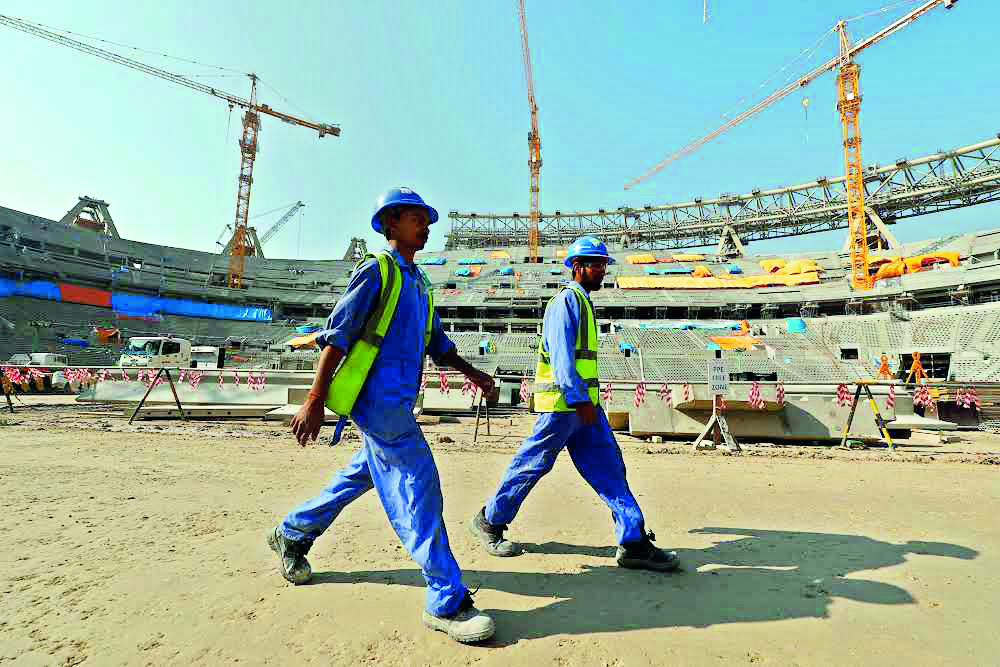‘Majority of Indian workforce in the Middle East hails from Uttar Pradesh, Bihar and Tamil Nadu’

Mumbai: A recent report reveals that Indian workers, particularly from Uttar Pradesh, Bihar, Rajasthan, and Tamil Nadu, form the backbone of the construction industry in Gulf Cooperation Council (GCC) countries.
According to the data of Huntr, the UAE-based marketplace connecting migrant workers with enterprises, Uttar Pradesh, Bihar, Rajasthan, and Tamil Nadu are the highest contributors to the migration of construction workers from India to the GCC countries.
Workers with proficiency in construction skills such as masonry, carpentry, plumbing, electrical works, and welding and having prior experience in construction projects, are highly valued by the industries in the GCC countries, the report stated.
Additionally, the report highlights the significance of certifications from the National Skill Development Corporation India (NSDC) and good physical fitness for workers in the GCC region. Basic communication skills in English and adaptability to diverse working conditions and cultures are also noted as valuable attributes in the construction sector.
The analysis, based on data from the Huntr platform, reveals that construction workers from India in the Middle East typically fall within the 20-40 age group and are predominantly male. The report also notes the diverse educational backgrounds of these blue-collar workers, with many having minimal formal education. However, individuals with technical or vocational training in specific construction trades are highly valued, underscoring the importance of specialised skills in the field.
Samuel Joy, CEO of Huntr, points out that apart from Indian workers, individuals from countries like Nepal, Pakistan, Bangladesh, Sri Lanka, Uganda, Kenya, Ghana, and Sierra Leone significantly contribute to the construction sector in the Middle East. Despite a stable salary scenario in recent years, the report suggests a potential increase in demand, reflecting the evolving dynamics of the market.
Joy emphasises the Middle East’s appetite for construction workers, extending opportunities to skilled labour worldwide in countries such as Saudi Arabia, the UAE, Qatar, Kuwait, and Oman, creating a broader canvas of opportunities in the global labour migration landscape.



